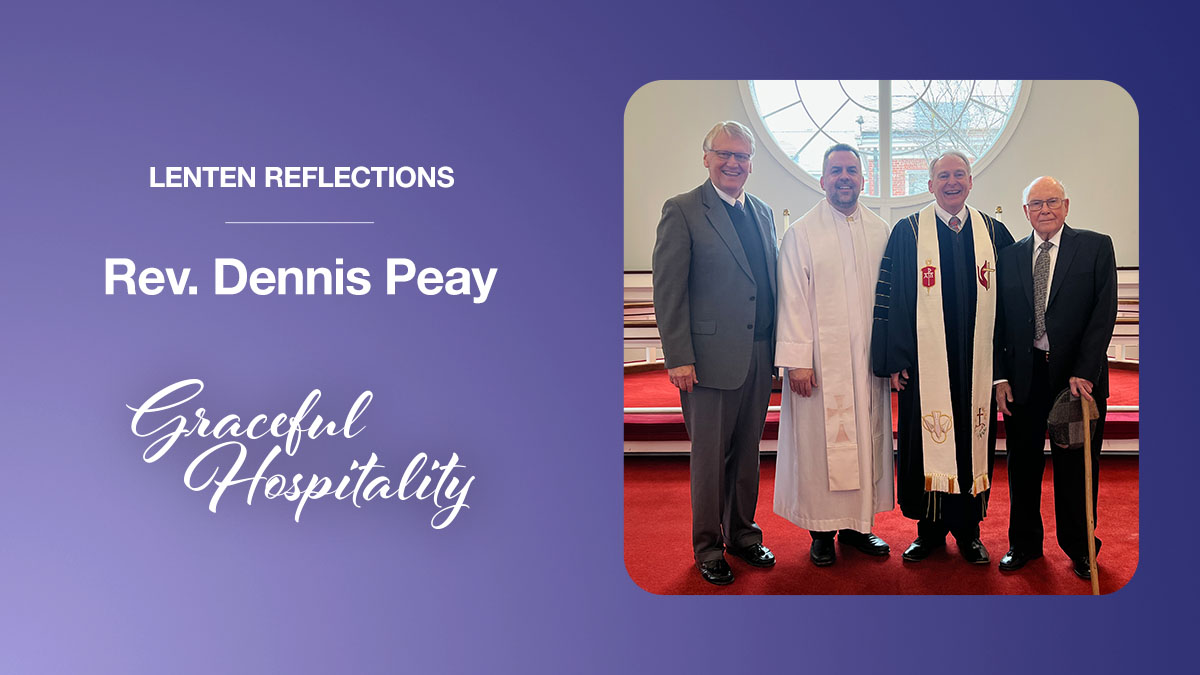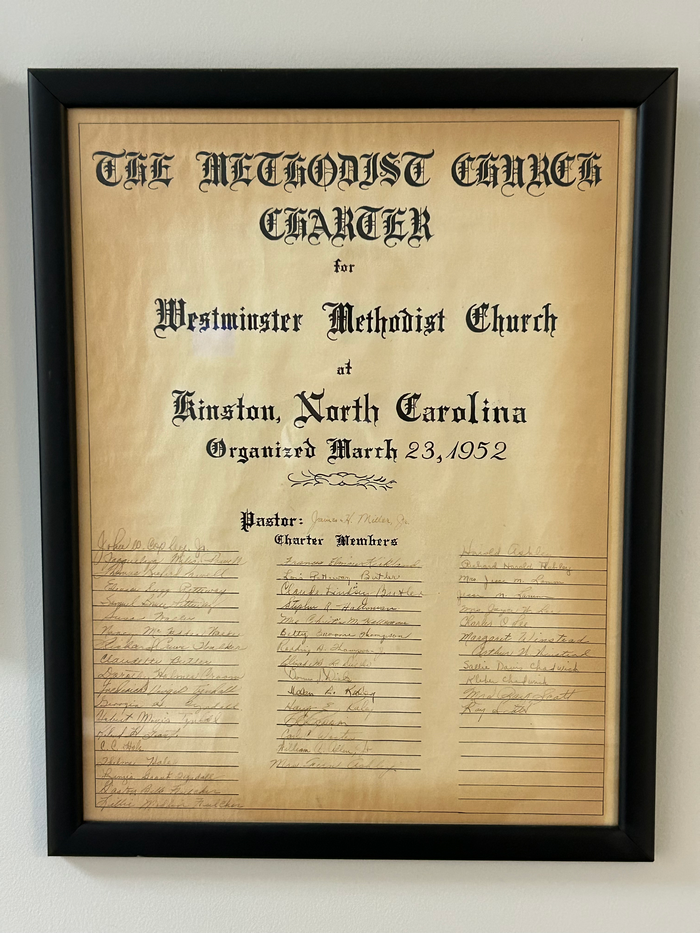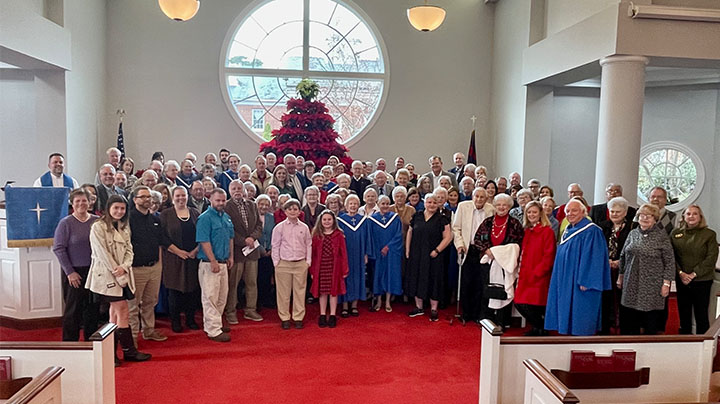

1950s Kinston was a growing time. DuPont opened their manufacturing plant for synthetic fibers, and people from all over the country moved to eastern North Carolina farm country for new work. Queen Street Methodists saw an opportunity in the then-growing West Kinston. A new gathering for Methodist people started at the Jaycee Youth Center in 1951 before chartering on March 23, 1952. Led by Rev. Jimmy Miller, the newly formed West Kinston Methodists, in partnership with Queen Street Methodists and the North Carolina Conference, land was purchased for the first buildings of Westminster United Methodist Church. Seventy years of Methodism and United Methodism call the corner of Westminster Lane and Carey Road home. As Kinston grew, Westminster grew.
Today, Kinston and Westminster search for a better day. The exodus of jobs led to an exodus of people. The church maintained its ministry, seeing God’s grace abound in extending ministry beyond the walls. One of our greatest treasurers is a preschool where God’s joy echoes off the walls, and the cries of little ones are a delight. There is chapel time and playtime. There is space for learning and a space for making friends. Hundreds upon hundreds of families over at least six decades shared the joy of their children while we shared the joy of the Lord.
Jesus said, “Let the children come to me; do not stop them, for it is to such as these that the kingdom of God belongs. Truly I tell you, whoever does not receive the kingdom of God as a little child will never enter it.” And he took them up in his arms, laid his hands on them, and blessed them.” (Mark 10:14-16) Westminster people, once a new people, welcomed all as they came to this new place. Today, we continue welcoming new young ones who come to sit with Jesus for a story that continues with hope and grace.

Lord, humble our hearts that we come like little children and share that welcome with all God’s children, young and old, from near and far away.
Rev. Dennis Peay serves as the pastor of Westminster UMC in Kinston, NC.
Our theme for this year’s Lenten reflections is Graceful Hospitality. 2023 marks the 70th anniversary of the Ten Dollar Club, now known as the New Room Society. We give thanks for our Conference’s ongoing commitment to co-creating new places for new people to gather in communion with Jesus Christ and extending graceful hospitality to all of God’s children.
